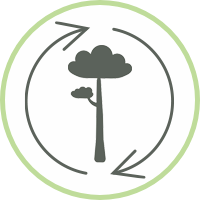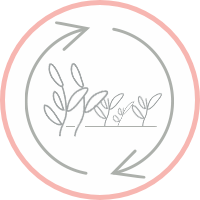Home | Carbon offsets
Your insurance, makes a world of difference
By choosing The Green Insurer, you’re helping fund impactful carbon offset projects across the globe.
How much carbon has been offset

Explore our projects

Blue Carbon Mangrove Restoration, Pakistan
Blue Carbon Mangrove Restoration in Pakistan’s Indus Delta spans 350,000 ha, removing 142 million tonnes of CO2e for global climate mitigation.
Project status: Active
Learn more about the Blue Carbon Mangrove Restoration project
Elazig Solar Farm,
Turkey
Elazig Solar Farm pioneers high-efficiency solar power in Turkey, reducing reliance on fossil fuels and stabilising energy costs.
Project status: Active
Learn more about the Elazig Solar Farm project
Household Solar Lighting, Zambia
This project provides solar lighting to Zambian families, reducing carbon emissions and enabling safer study, cooking, and socialising at home.
Project status: Active
Learn more about the Household Solar Lighting project
Improved Biodiversity & Mixed Reforestation
This reforestation project restores 2,115 ha of former pastureland, planting over one million trees to boost biodiversity and carbon capture.
Project status: Active
Learn more about the Improved Biodiversity & Mixed Reforestation project
Reforestation on Degraded Land, Uruguay
This project restores 21,298 hectares of degraded grazing land in Uruguay, creating sustainable forests to boost biodiversity and carbon capture.
Project status: Active
Learn more about the Reforestation on Degraded Land project
Salkhit Wind Farm, Mongolia
Salkhit Wind Farm is Mongolia’s first grid-connected wind project, supplying renewable energy and advancing expertise for future developments.
Project status: Active
Learn more about the Salkhit Wind Farm project
Wind power in Karnataka, India
This project in Karnataka generates renewable wind power, reducing fossil fuel reliance and supporting India’s Southern Electricity Grid.
Project status: Active
Learn more about the Wind power in Karnataka project
Peatland protection - Rimba Raya
The Rimba Raya Biodiversity Reserve protects carbon-rich peatland from palm oil deforestation, preventing 100 million tonnes of emissions.
Project status: Inactive
Learn more about the Peatland protection in Rimba Raya project
Peatland protection, Keo Seima, Cambodia
The Keo Seima Wildlife Sanctuary in Cambodia protects endangered wildlife and supports local Bunong communities through conservation and sustainable development.
Project status: Inactive
Learn more about the Peatland protection in Keo Seima project
Tropical Forest Protection, Mai Ndombe
The Mai Ndombe project in the DRC reduces forest and biodiversity loss whilst providing community prosperity through vital investments into the local area.
Project status: Inactive
Learn more about the Tropical Forest Protection projectHow it works

Calculate carbon
We calculate how much carbon is produced by you when you use The Green Insurer app.

Invest in projects
Working with our partners, we invest in sustainable projects that offsets your carbon and help the people who live near these projects.

Review your impact
You can see how much carbon you have offset, and how much carbon has been offset by all of our customers.
Whilst we make every effort to calculate your carbon emissions accurately, it is always possible that your actual emissions may be different.
You must use The Green Insurer app when driving to enable us to offset your miles.
Our approach to CO2
At The Green Insurer, we adopt a three-pillar approach to CO2 as part of our quest to help reduce the impact of carbon on our environment:

Avoid carbon emissions
The easiest way to achieve this is to drive less. Our rewards programme rewards our customers for driving fewer miles than anticipated when they take out their policy. So why not benefit by leaving your car at home for short journeys, taking the train or bus or walking to a local shop?

Reduce carbon emissions
Our Green Rewards programme incentivises customers to drive in a greener way, which means driving in a smooth, fuel efficient way. The higher the customer's Green Driving Score, the faster they earn rewards. Customers can see their most recent trips, how green they have been and how to make improvements to score more.

Offset carbon emissions
Driving is a fundamental part of life for many people, therefore, carbon emissions are inevitable. Our approach is to offset the vehicle emissions of our customers by investing in high quality carbon projects via our partners. These projects all work in line with the United Nations Sustainable Development Goals to benefit the people who live near each project.
How carbon offsets are calculated
To add a little context, the VW emissions scandal in 2015 led to improvements and more rigour over how carbon emissions are submitted to the DVLA, with the Worldwide Harmonised Light Vehicle Test Procedure (WLTP) being fully adopted for CO2 emissions for new cars since 2018.
We use the DVLA’s carbon emissions data along with our Green Driving Score algorithm to achieve the most accurate carbon emissions data that we can.
The amount of carbon offset is based on the carbon emissions data, the actual miles driven and adjusted for how fuel efficiently you drive. You can view your Green Driving Score in The Green Insurer app along with a summary of how much carbon you've offset.
If the DVLA data is not available, we may use the data from the Society of Motor Manufacturers and Traders (SMMT) or Thatcham data for that car.
Carbon offset scheme
We make sure that all of our projects work not only to remove carbon, but also that they contribute to the local communities in which they take place.
We measure these benefits using the United Nations Sustainable Development Goals.
The 2030 Agenda for Sustainable Development, adopted by all United Nations Member States in 2015, provides a shared blueprint for peace and prosperity for people and the planet, now and into the future. At its heart are the 17 Sustainable Development Goals (SDGs), which are an urgent call for action by all countries - developed and developing - in a global partnership. They recognise that ending poverty and other deprivations must go hand-in-hand with strategies that improve health and education, reduce inequality, and spur economic growth - all while tackling climate change and working to preserve our oceans and forests.